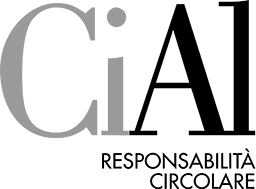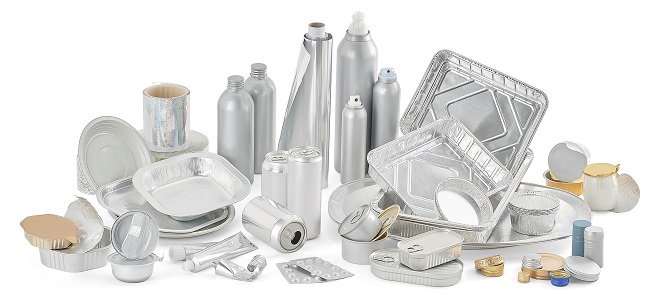With 47,400 tonnes of aluminium packaging recycled in 2020, representing 68.7% of the total of 69,000 tonnes sold on the market – plus 4,500 tonnes of thin packaging destined for waste-to-energy treatment – Italy confirms its leading position in Europe in terms of production of recycled aluminium in 2020.
These are the key figures that were announced at the annual meeting of the 250 member companies of CIAL – Consorzio Nazionale per il Recupero e il Riciclo degli Imballaggi in Alluminio, Italy’s national consortium for recycling of aluminium packaging, held in Milan on May 14th.
This result, of vital importance in a country whose aluminium production is 100% based on recycling, saved the equivalent of 355 thousand tonnes of CO2 in greenhouse gas emissions while saving energy equivalent to more than 153 thousand tonnes of oil, all made possible by the combined efforts of institutions, companies, dealers, citizens and municipalities.
5,448 municipalities and about 47 million citizens participate actively in aluminium waste separation. CIAL collaborates with them under the Anci-Conai Framework Agreement in effect all over the country.
These figures have enabled the positive trend in separate collection managed by the Consortium to be maintained in recent years, despite the drop in both the quantities introduced (-6%) and the quantities recycled (-7%) due to the economic and industrial crisis that has hit the country and the global economy following the Covid-19 pandemic.
“The recycling rate, slightly down but still in line with the trends of recent years and higher than the targets set in the new European directives for the circular economy, confirms that Italy’s national system for the management of aluminium packaging, throughout the entire sustainability chain has reached a level of maturity, awareness and responsibility that guarantees an essential contribution to the country’s ecological transition,” CIAL President Bruno Rea told the meeting. “The development process is
now irreversible, and even the main regions of Southern Italy, which are already showing better performance this year, will soon be able to reduce the gap with the more mature areas, thanks in part to the strong impetus given by the investments envisaged in the National Recovery and Resilience Plan for the creation and modernisation of material selection and treatment plants.”
CIAL’s commitment in this respect has for many years provided customised support that is not limited to simple payment to municipalities and operators, but also includes a coaching process aimed at ensuring the identification and adoption of new technologies for sorting and maximising the recovery and quality of the aluminium collected. Over the years, CIAL has encouraged reduction of waste production of the material it is responsible for at the source, while providing support and funding for introduction of new ‘green’ technologies such as those permitting recovery of increasing quantities of aluminium from undifferentiated waste and even post-combustion slag.
“Another source of satisfaction,” concludes Rea, “is the commitment on the part of companies working in the industry, who, thanks to the ongoing improvements introduced by technological innovation – optimisation and reduction of weights and thicknesses and easy, complete recyclability – make aluminium packaging increasingly consistent with the principles of prevention and therefore with the policies and models of socio-economic growth of the Green Economy.” Suffice it to say that, based on a study carried out on the “Evolutionary trend of aluminium packaging over the last twenty years, a total of 107,000 tonnes of aluminium have been saved for the production of packaging, preventing 936,000 tonnes of CO2 equivalent greenhouse gas emissions“.
‘Permanent’ packaging
Lightweight, non-polluting, and 100% recyclable for an infinite number of times. Robust but ductile, resistant but malleable. Aluminium is used today for the production of various types of packaging used to contain, protect and preserve food and other products: beverage cans, food tins and trays, foil, spray cans, tubes, caps and seals.
All these materials, having fulfilled their function, can easily be transformed into new aluminium ready to be (re)used to make numerous long-lasting products at a particularly low cost to the environment. 75% of all the aluminium ever produced in the world is still in use today!
CIAL 2020 figures
- 250 companies in the consortium.
- More than 442 affiliated entities, 255 platforms and 12 smelting centres throughout the country ensure the collection, treatment, recycling and recovery of aluminium.
- 5,448 municipalities (over 69% of all active Italian municipalities) collaborate with CIAL in the separation of aluminium packaging waste, involving 47 million citizens (78% of the Italian population served).
- 9% average increase in separate collection over the last three years.
- Quantity of aluminium packaging entering the Italian market: 69,000 tonnes.
- Total recovery of aluminium packaging in Italy (portion recycled + portion of packaging reclaimed in waste-to-energy plants): 51,900 tonnes.
- Recycling: 47,400 tons of aluminium packaging, equivalent to 68.7% of the quantity on the market
- Waste-to-energy recovery: 4,500 tons (portion of thin packaging that goes to waste-to-energy plants)
- The recycling of 47,400 tonnes of aluminium packaging avoided greenhouse emissions totalling 355 thousand tonnes of CO2 while saving energy equivalent to over 153 thousand tonnes of oil.
AL 100% responsible
- Aluminium is infinitely recyclable.
- Aluminium recycling guarantees energy savings of 95% compared to
- traditional production processes.
- 75% of all the aluminium ever produced in the world is still in use.
- Europe recycles the highest amount of aluminium per capita in the world.
- Italy’s aluminium production is now 100% based on recycling.
- Italy ranks among the first in Europe in terms of the amount of recycled aluminium produced.

